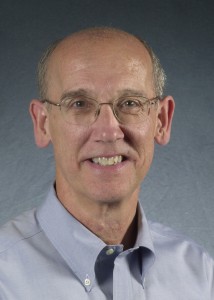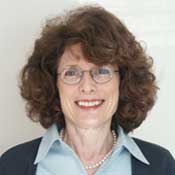
Donald H. Baucom, Ph.D.
Richard Lee Simpson Distinguished Professor of Psychology
UNC - Chapel Hill, North Carolina

Donald H. Baucom, Ph.D.
Richard Lee Simpson Distinguished Professor of Psychology
UNC - Chapel Hill, North Carolina

Gayla Margolin, Ph.D.
Professor of Psychology and Pediatrics
University of Southern California

Gayla Margolin, Ph.D.
Professor of Psychology and Pediatrics
University of Southern California
“Families Under Stress: Implications for Intervention”
Please join us for this cutting-edge panel discussion focusing on couple stress (including parents), led by two of the leading experts in the field. Particular attention will be given to how best to conceptualize stress in couples, new approaches in intervention and prevention, and future directions for the field. This is a roundtable, participatory discussion, so come with questions and contribute to this event.
Co-Sponsored with the Social Science Research Institute and the Children, Youth & Families Consortium
Wednesday, August 31, 2016
The Bennett Pierce Living Center
9:00 a.m. – 12:00 p.m., 110 Henderson Building

Velma McBride Murry, Ph.D.
Lois Autrey Betts Chair, Education and Human Development
Joe B. Wyatt Distinguished University Professor
Professor, Human & Organizational Development in Peabody College
Vanderbilt University

Velma McBride Murry, Ph.D.
Lois Autrey Betts Chair, Education and Human Development
Joe B. Wyatt Distinguished University Professor
Professor, Human & Organizational Development in Peabody College
Vanderbilt University
“Scaling up Evidence-Based Programs in Community Settings: Opportunities and Challenges”
Abstract: A plethora of empirically supported preventive interventions have been shown to avert and improve outcomes for children, youth, and families. Yet, evidence-based programs and practices (EBPs) often do not lead to large-scale and successful program implementation in real world settings. Advancing the impact of effective prevention programs requires addressing fundamental questions about novel ways that communities can adopt, adapt to their own cultural values, and subsequently own and deliver an EBP intervention with fidelity and sustainability. This presentation will address challenges and opportunities for scaling up EBP in community settings, demonstrating the potential widespread implementation and sustainability of technology as an effective program delivery platform.
Thursday, September 22, 2016
The Child Study Center’s 2016 Lois Bloom Lecture
4:15 p.m., The Nittany Lion Inn, Assembly Room
Penn State’s Fifth Annual Conference on Child Protection and Well-Being
Co-Sponsored by the Child Study Center
Monday, October 10, 2016, to Tuesday, October 11, 2016
Nittany Lion Inn

Gene H. Brody, Ph.D.
Regents' Professor of Child and Family Development
Founder and Director, Center for Family Research
The University of Georgia

Gene H. Brody, Ph.D.
Regents' Professor of Child and Family Development
Founder and Director, Center for Family Research
The University of Georgia
“Resilience to Adversity and the Early Origins of Disease”
Abstract: This presentation will describe recent research which tested hypotheses about the early origins of disease among rural African American youth. These children and adolescents are at elevated risk for health problems across the lifespan. A basic premise of the health disparities literature that has yet to be examined empirically proposes that exposure to chronic stressors, many of which are psychosocial, will weather young people’s bodies, resulting in premature aging of cells and tissues throughout the body and a shorter life expectancy. This presentation will address this hypothesis and focus on the ways in which family support and participation in prevention programming can offset health risks that contribute to the early origin of disease.
Co-Sponsored with the Prevention Research Center
Dr. Brody is also presenting the BENNETT LECTURE
Thursday, October 20, 2016
Wednesday, October 19, 2016
4:15 p.m., The Nittany Lion Inn, Alumni Lounge
Penn State’s 24th Annual National Symposium on Family Issues
“Sleep across the Life Course: Family Influences & Impacts”
Co-Sponsored with the Social Science Research Institute
Monday, October 24, 2016, to Tuesday, October 25, 2016
Nittany Lion Inn, Ballroom

S. Alexandra Burt, Ph.D.
Professor of Psychology
Michigan State University

S. Alexandra Burt, Ph.D.
Professor of Psychology
Michigan State University
“It really does take a village: The role of neighborhood in the etiology of child antisocial behavior”
Abstract: There is now considerable evidence that neighborhood disadvantage predicts child antisocial behavior, and that this effect may be causal, at least to an extent. However, the mechanisms underlying these contextual influences on child behavior remain unclear. In this talk, I will examine gene-environment interplay as one key possibility, evaluating how structural characteristics of the neighborhood shape the etiology of child antisocial behavior. The studies to be presented employed a number of state-of-the-science sampling, methodologic, and analytic techniques. They were also designed to build upon one another, thereby allowing us to more fully explore the possibility of gene-environment interplay. Results collectively provide compelling, if rather surprising, evidence regarding both ‘bioecological gene-environment interactions’ and passive gene-environment correlations. Implications will be discussed.
Thursday, November 10, 2016
4:15 p.m., 127 Moore Building

Nancy Eisenberg, Ph.D.
Regents' Professor
Department of Psychology
Arizona State University

Nancy Eisenberg, Ph.D.
Regents' Professor
Department of Psychology
Arizona State University
“Self-Regulation in Childhood: Conceptualization and Correlates”
Abstract: Recently there has been an increasing appreciation of self-regulation in children’s socioemotional functioning in both typical and atypical samples. Dr. Eisenberg will discuss different conceptualizations of top-down self-regulation and differentiate between effortful control and reactive control (aspects of control that are less voluntary), and she will explain how these constructs are typically operationalized. She will also discuss hypothesized and empirical relations of self-regulation and reactive (bottom-up) control to adjustment and maladjustment, emphasizing temperamentally based effortful control, bidirectional relations, and mediators and moderators of these relations.
Co-Sponsored with the Edna Bennett Pierce Prevention Research Center
Dr. Eisenberg is also presenting the 2017 LECTURE ON COMPASSION
Thursday, April 20, 2017
4:30 p.m. – 5:30 p.m., 22 Biobehavioral Health Building/Pike Auditorium
Wednesday, April 19, 2017
4:15 p.m., 127 Moore Building